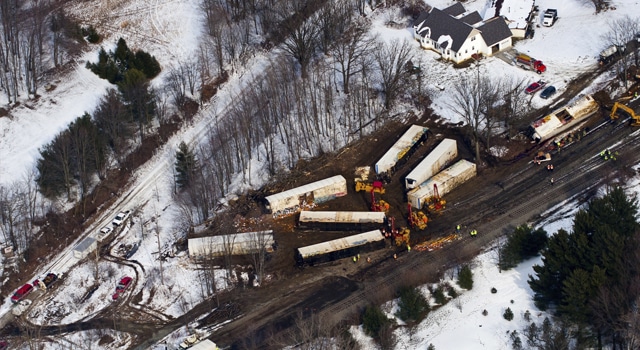Over the span of decades, from August 1, 1953, to December 31, 1987, many military service members, their families, and civilian employees were inadvertently exposed to harmful chemicals through contaminated water at the U.S. Marine Corps Base Camp Lejeune. In the aftermath, many individuals experienced a variety of health issues, including life-altering conditions presumed to be linked to toxic chemical exposure.
These conditions take a physical and emotional toll on victims and their families. For the first time in decades, U.S. veterans and others impacted by the contaminated water now have avenues available to pursue justice. Discover who qualifies for the Camp Lejeune lawsuit and how to hold accountable those deemed responsible for allowing the contamination to persist.
Who Can File a Camp Lejeune Lawsuit Claim?
To qualify to file a Camp Lejeune lawsuit claim, an individual must have spent at least 30 cumulative days at the Camp Lejeune military base or Marine Corps Air Station (MCAS) New River in North Carolina during the specified time frame. They must have been exposed to the contaminated water.
Those who can potentially file a lawsuit claim include:
- Military Personnel: Service members stationed at Camp Lejeune between August 1, 1953, and December 31,1987.
- Dependents: Family members, including spouses and children, who resided at Camp Lejeune during the specified time frame.
- Civilian Employees: Civilian workers employed at Camp Lejeune during this period.
- Contract Workers: Civilians completing work as contractors at Camp Lejeune during the specified time period.
- Surviving Family Members: Spouses, parents, children, or siblings of deceased individuals filing on behalf of a loved one who meets the above criteria.
These individuals may be eligible for a claim if they were subsequently diagnosed with one or more of the following health conditions as detailed by the CDC’s Agency for Toxic Substances and Disease Registry:
- Cancers, including bladder, brain, cervical, kidney, liver, esophageal, prostate, lung, thyroid, colon, larynx, breast, or oral cavity and pharynx cancer.
- Female infertility or miscarriage.
- Hepatic steatosis.
- Leukemia.
- Multiple myeloma.
- Myelodysplastic syndromes and aplastic anemia.
- Non-Hodgkin Lymphoma.
- Parkinson’s Disease.
- Kidney disease and Renal toxicity.
- Scleroderma.
- Systematic sclerosis.
- Non-Cardiac birth defects.
According to the National Research Council (NRC) Committee on Contaminated Drinking Water and Camp Lejeune, documented evidence establishes a connection between health conditions and exposure to chemicals present in the drinking water at Camp Lejeune and MCAS New River during the specified timeframe.
Know If You Are Eligible for a Camp Lejeune Claim
If you suspect you or a loved one has been affected by the water contamination at Camp Lejeune, don’t navigate this process alone. We recognize the emotional burden these health conditions can have. Our legal advocates have taken action to protect the public from harm caused by water contamination. We can help you determine your eligibility, and guide you through the necessary steps toward seeking rightful compensation.
What Proof Do You Need for the Camp Lejeune Lawsuit?
Filing a Camp Lejeune lawsuit requires careful documentation to substantiate your claim. This essential proof can include:
- Military Records: Your service records, often the DD Form 214 detailing your time stationed at Camp Lejeune, can be obtained from the National Personnel Records Center (NPRC), which provides online and mail-in request options.
- Medical Records: Comprehensive medical records outlining your diagnosis and treatment for the specific health condition linked to Camp Lejeune water contamination can be obtained through the healthcare providers or medical facility where you received care.
- Residency Documentation: If you were a dependent residing at Camp Lejeune during the contamination period, evidence of your residency, such as utility bills or leases, can be obtained by contacting the relevant utility providers or property management companies.
- Employment Records: Civilians employed at Camp Lejeune need documentation proving their employment during the specified timeframe, and can contact former employers or the human resources department for employment verification and records.
- Witness Statements: Statements from individuals who can attest to your presence at Camp Lejeune during the contamination period, including colleagues, friends, or family members, can strengthen your case.
- Expert Opinions: Consult medical professionals who can offer expert opinions linking your health condition to the Camp Lejeune water contamination to bolster the medical aspect of your claim
A comprehensive set of documents is pivotal for the success of your Camp Lejeune lawsuit. If obtaining these records proves challenging, support is available. Legal professionals specializing in Camp Lejeune claims can guide you through the process, offering assistance in gathering the necessary documentation to support your case.
How Do You File a Claim for Camp Lejeune Water Contamination?
The Camp Lejeune Justice Act of 2022 (CLJA) allows individuals and loved ones, regardless of their associated branch of the military, to file a claim with the Department of the Navy for relief after toxic exposure. Doing so requires several structured steps to ensure your case is presented effectively. Here’s how to file a claim for Camp Lejeune water contamination:
- Determine eligibility.
- Gather evidence and documentation.
- Complete an administrative CLJA claims form.
- File an official complaint, or lawsuit, in federal court.
Filing a Camp Lejeune claim can be complicated. Understanding the specific laws, gathering the necessary documentation, and providing the required evidence is a nuanced process. Support through the legal journey can provide clarity and necessary guidance.
Legal Assistance for Your Camp Lejeune Claim
Filing a Camp Lejeune claim involves more than paperwork. Seeking the counsel of an attorney familiar with this process, including who qualifies for the Camp Lejeune lawsuit and how to obtain the required documentation, is vital to your case. The process can be complex, and accurate submission of your claim is crucial. Our free case evaluation can help if you believe you may be entitled to a claim. We stand with you as your advocates every step of the way.
Has Any Camp Lejeune Lawsuit Been Settled?
Over 117,000 Camp Lejeune claims have been filed, though the majority await settlement. Settlements for the Elective Option under the CLJA have arrived, though specific figures in each case are currently confidential. Additional settlements are expected throughout 2024.
For individuals contemplating or currently engaged in Camp Lejeune lawsuits, staying informed is crucial. The landscape of Camp Lejeune claims is dynamic, with the potential for a large number of new claims and future settlements.
Don’t Wait to File a Camp Lejeune Water Contamination Claim
Living with a health condition as a result of Camp Lejeune water contamination can be emotionally draining, even devastating. Our team of attorneys can help you navigate the challenges of a Camp Lejeune water contamination claim, ensuring the accurate filing of your complaint and helping you pursue compensation that eases your suffering.
 W&L Team
W&L Team 

